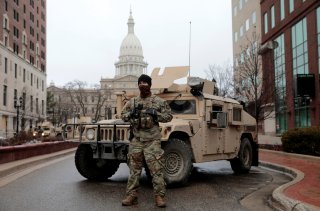Toleration, Liberalism, and Lessons for a Fractured America
The bitter sectarianism that enveloped sixteenth-century Europe offers a warning about the tribalism that now darkens American public life.
Thus, the roots of liberal democracy—a political society based upon religious freedom and characterized by religious pluralism—were planted deeply into the soil of European thought.
Other thinkers, authors, and rebels would nurture this concept of freedom over the course of two centuries. Yet they were always in the minority. Jacopo Acontius stands out among them. His bold and generous vision was noted by John Dury in his prefatory note to the 1648 English translation of Darkness Discovered:
To be carried along with the stream, or to be silent when matters are not carried according to our mind, is no hard matter to any that hath any measure of discretion; but to row against the stream, to labor against the wind and tide, and the whole current of an age…is not the work of an ordinary Courage.
A man struggling against the strongest tides of convention in his day—against the authorities of church and state, and the threat of censure, disgrace, and persecution—with little to gain and, in worldly terms, everything to lose. Yes, no ordinary work of courage.
Joseph Loconte is a distinguished visiting professor at Grove City College and a senior fellow at the Institute on Religion and Democracy. He is the author of God, Locke, and Liberty: The Struggle for Religious Freedom in the West. His most recent book is A Hobbit, a Wardrobe, and a Great War, which is being made into a documentary film at hobbitwardrobe.com.
Image: Reuters.

